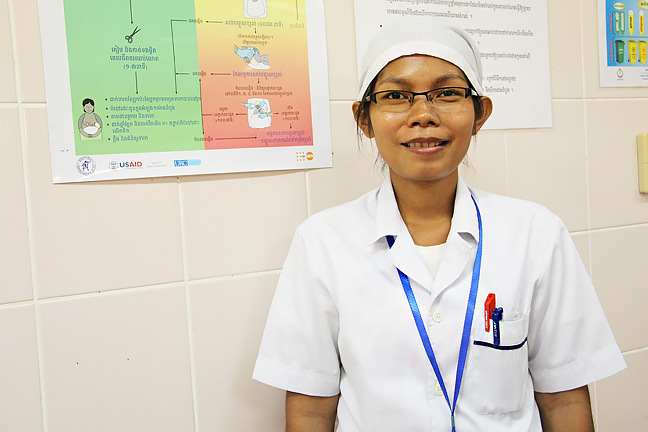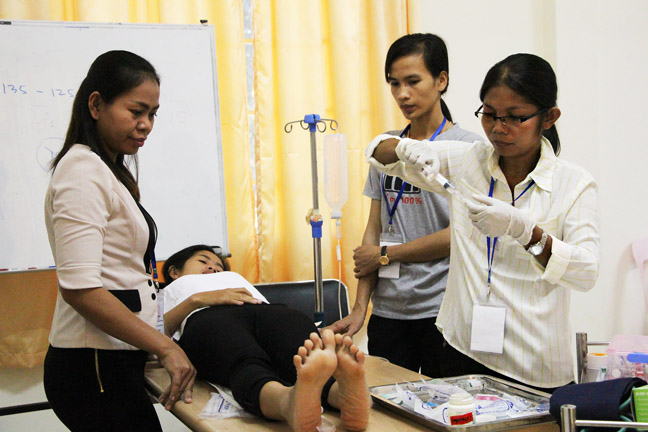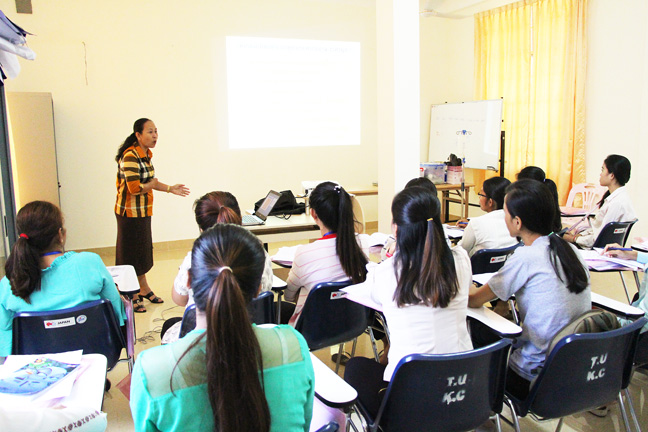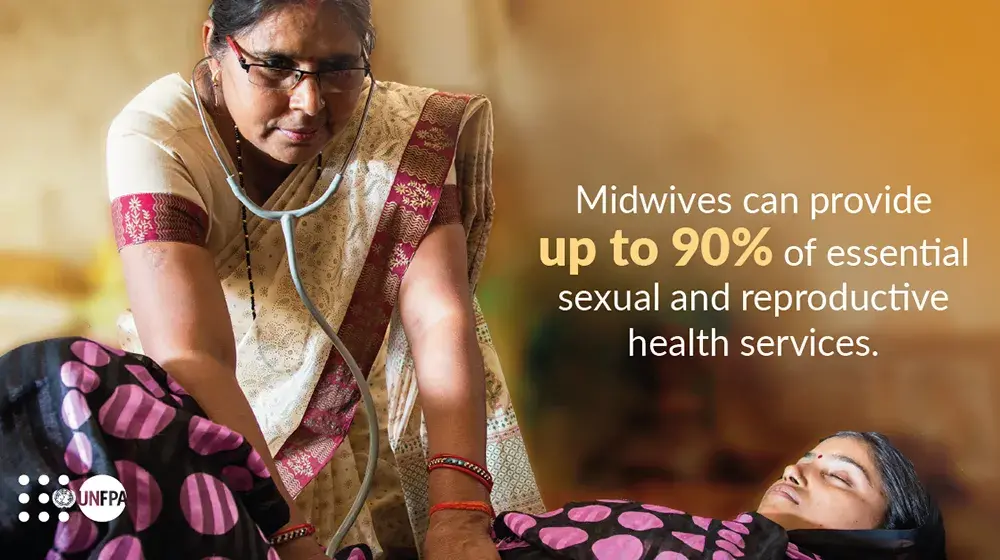Kampong Cham, 28 November 2016 - In Cambodia, giving birth is often referred to as “crossing the river” - both involve high risk of harm, or even death, if something goes wrong. This is particularly true for women living in the remote areas who lack accurate knowledge of safe pregnancy and childbirth
In the last decade, the maternal mortality ratio in the Cambodia has reduced by almost two thirds, from 472 to 170 per 100,000 live births. Despite the significant improvement, deaths in childbirth still remains a challenge.
Some women never even receive antenatal care once, and they come to the health centre too late. It is easy for them to experience complications during delivery.
“Some women never even receive antenatal care once, and they come to the health centre too late. It is easy for them to experience complications during delivery,” said Ket Tanghor, a 32-year-old midwife in Sla Health Centre in Memot district, Tboung Khmum province.
Tanghor has been working as a midwife since 2013 and has assisted more than 300 birth deliveries in her community since then.

“I feel like a mother to every child I help deliver”
In Tanghor’s community, the mothers whom she has supported often introduce her to their children as, “the midwife who helped deliver you.”
“It’s the best feeling in the world. It made me feel like I’m not just a health worker, but a mother to every child I help deliver.”
The 32-year-old midwife said she feels a huge responsibility to ensure that every childbirth is safe.
“Nothing makes me happier than seeing mothers and babies safe, but it can be heart-wrenching when the situation turns out otherwise.”
“Without proper skills, dealing with women’s labor complications can be very nerve-racking. It’s like having two lives lying on your hands. That’s why I find the training on Basic Emergency Obstetric and Newborn Care (BEmONC) very useful for me.”
Without proper skills, dealing with women’s labor complications can be very nerve-racking. It’s like having two lives lying on your hands.
Providing skills that save lives
Tanghor is one among the 16 midwives who attended a one-month intensive training on BEmONC, funded by UNFPA, in Kamong Cham provincial hospital. The training aims to strengthen midwives' capacity in dealing with life-threatening situations during birth delivery.

The BEmONC training takes form in three main formats: theoretical learning, role play and real-life practice. During the training in Kampong Cham provincial hospital, the midwives can practice their skills under one-on-one supervision from a supervisor.
"What midwives learn in school is mostly theoretical - their practical skills are not sufficient yet. Most importantly, there are always new health problems that they do not learn in school or that are not strongly focused in the curriculum back then," said Muth Sovanara, who has been a midwife trainer since 2012. "In here we sit down with midwives and share our best and most up-to-date practices."

Sovannara said the complications that midwives most commonly report are obstetrical bleeding (excessive loss of blood) and eclampsia (convulsion during delivery). “We usually tailor our training’s focus to the most common cases that midwives are facing.”
Tanghor told UNFPA that in addition to the technical skills, she has also learned how to deal with the patients professionally. “Women can be really nervous about giving birth, so I learned from my colleagues here to be more supportive for the women in labour and patiently explain to them about their situations or what they should do.”
When asked about how she felt about the training, the midwife from Memot district replied, “I am more confident in my skills now after the training. I hope I can see more smiles from women and their newborns when I assist them in delivery safely.”
Since 2010, UNFPA has provided Emergency Obstetric and Newborn Care (EmONC) training to more than 1,000 midwives in Cambodia. In addition to skill training, UNFPA has been providing assistance to the Ministry of Health in expanding the EmONC facilities across Cambodia to ensure that health professionals have enough facilities to help women in emergency situations.




